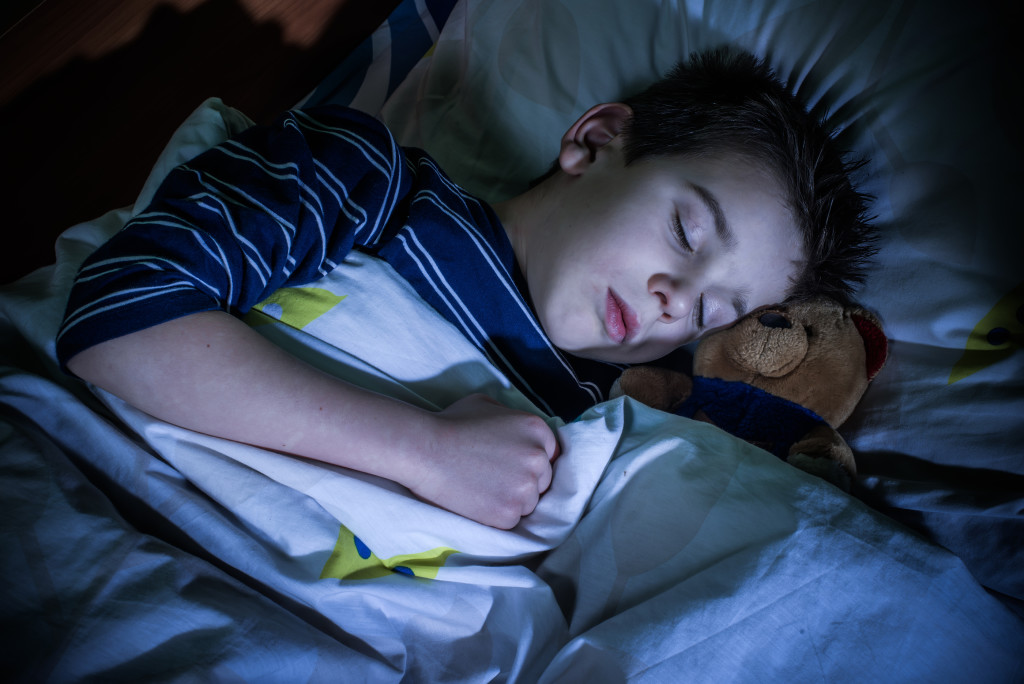Are you worried about the fact your child still wets the bed? Have you reached the end of your patience with nightly upsets due to a cold, urine soaked bed? Has bedwetting caused your child to avoid spending overnights with peers? Has your child’s bedwetting caused you to feel like a failure as a parent?
Bedwetting is a fairly common symptom. Here are some facts the American Academy of Child and Adolescent Psychiatry (AACAP) wants parents to know about bedwetting.
- Approximately 15 percent of children wet the bed after the age of three
- Many more boys than girls wet their beds
- Bedwetting runs in families
- Usually bedwetting stops by puberty
- Most bedwetters do not have emotional problems
- Children rarely wet the bed on purpose
The National Sleep Foundation and the Children’s Hospital of Boston estimate that 13-20% of 5-year-old children, 10% of 7-year-old children, and 5% of 10-year-old children still wet the bed. Between five and seven million children in the United States wet their beds on a regular basis, which accounts for around 10% of the country’s population of children. You are not the only parents dealing with bedwetting. There are most likely other children in your child’s classroom and neighborhood that are dealing with bedwetting.
To help your child stop wetting the bed, the AACAP suggests:
- Limiting liquids before bedtime
- Encouraging the child to go to the bathroom before bedtime
- Praising the child on dry mornings
- Avoiding punishments
- Making sure your child knows it is not their fault
- Waking the child during the night to empty their bladder
- Having the child wear pull ups at night
Most children begin to stay dry at night around the age of 3 to 4 years of age. The actual age at which a child masters staying dry at night is dependent on the child’s bladder control. As children grow, they become more aware of the sensation of a full bladder. When there is a delay in this development, it can cause bedwetting. If your pediatrician does not ask you about bedwetting, be sure to bring the subject up yourself. The physician can determine if there is a medical cause.
There are many things that can cause a child to start wetting the bed again after having mastered the ability to stay dry during the night. The pediatrician can determine if there is a medical reason, such as a urinary tract infection, or diabetes. This regression can also occur when the child experiences a major change in their life which causes them to be fearful and insecure. Major changes include parents divorcing, moving to a new school, the loss of a loved one, and the presence of a new baby or step parent in the family. Most children are ashamed and embarrassed by their bedwetting. If there are other children in the household, it is important to establish a “No teasing” rule about bedwetting and enforce it.
Making the bed in the following manner is very helpful, no matter what is causing the bedwetting: Put a plastic sheet over the mattress, then a regular sheet, and top that with a blanket. Repeat the process, so there are two layers of the fully made bed. This will make it easier to quickly get the child into a dry bed in the middle of the night. Some parents prefer to use disposable pads in the bed. It is advisable to have a moisture proof case for bed pillows, especially if your child is a restless sleeper. Keep fresh pajamas handy. Work out a simple routine with your spouse to establish who gets up at night, and who washes the bed clothes and remakes the bed.
Early supportive measures by the family can be very helpful, especially when the parents express their confidence that the child will be able to master bladder control. The child should never be punished for bedwetting. Be sure to praise the child for mastering other developmental milestones, skills, and good behaviors. Let your child know you are confident in their ability to master bladder control. Develop the ability to listen to their thoughts and feelings about bedwetting. Stand firm in your belief that they will triumph in the end.
Make an appointment to see a counselor if there are signs your child is having difficulty coping because of embarrassment over wetting the bed, or if you see possible emotional problems, following major life changes. Speak with a counselor when you feel discouraged as a parent, and are losing patience with the situation. The counselors at The Center for Family Unity can be of assistance in evaluating your child, and working to resolve emotional issues that may contribute to poor bladder control. Parents can also benefit by being freed from the belief that they have failed as a parent, and the guilt that accompanies this false belief. Call for a free phone consultation today at 619-884-0601.










